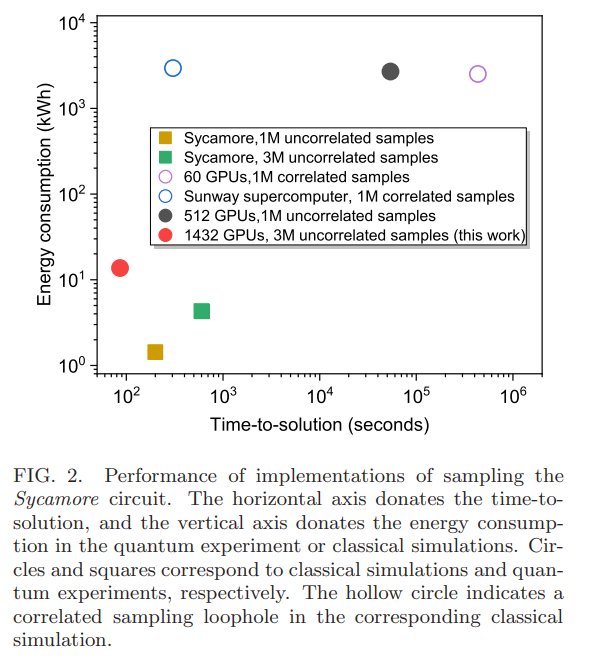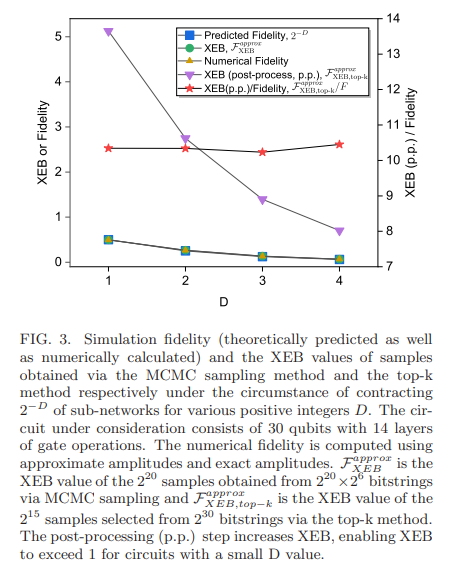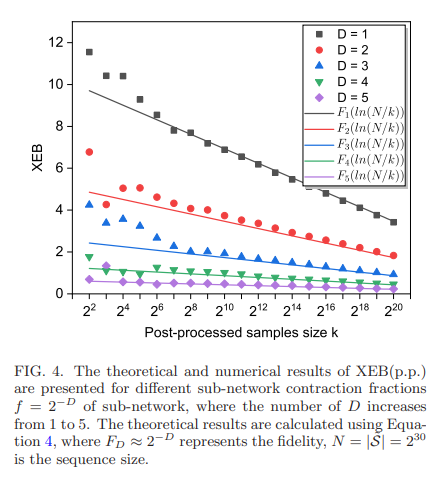Leapfrogging Sycamore: Harnessing 1432 GPUs for 7× Faster Quantum Random Circuit Sampling
2024-06-27 09:55
1322 浏览
Random quantum circuit sampling serves as a benchmark to demonstrate quantum computational advantage. Recent progress in classical algorithms, especially those based on tensor network
methods, has significantly reduced the classical simulation time and challenged the claim of the firstgeneration quantum advantage experiments. However, in terms of generating uncorrelated samples,
time-to-solution, and energy consumption, previous classical simulation experiments still underperform the Sycamore processor. Here we report an energy-efficient classical simulation algorithm,
using 1432 GPUs to simulate quantum random circuit sampling which generates uncorrelated samples with higher linear cross entropy score and is 7 times faster than Sycamore 53 qubits experiment.
We propose a post-processing algorithm to reduce the overall complexity, and integrated state-ofthe-art high-performance general-purpose GPU to achieve two orders of lower energy consumption
compared to previous works. Our work provides the first unambiguous experimental evidence to refute Sycamore’s claim of quantum advantage, and redefines the boundary of quantum computational
advantage using random circuit sampling.






Article: https://arxiv.org/abs/2406.18889
